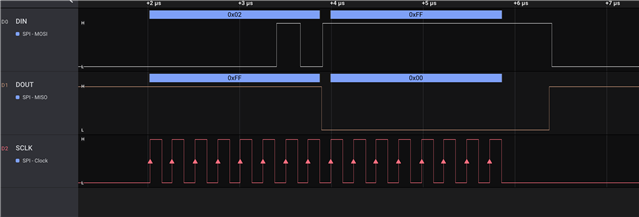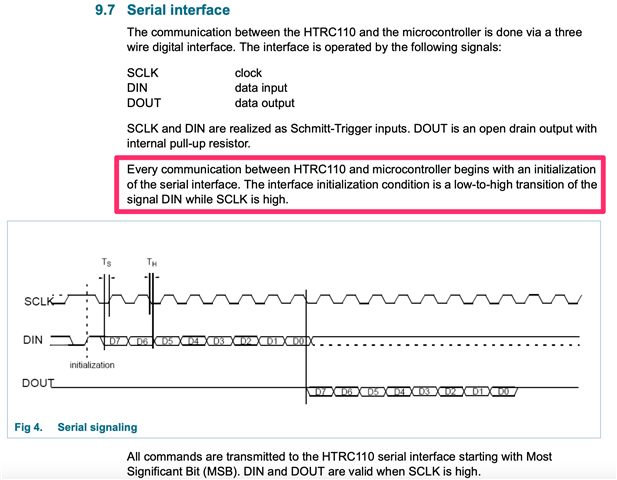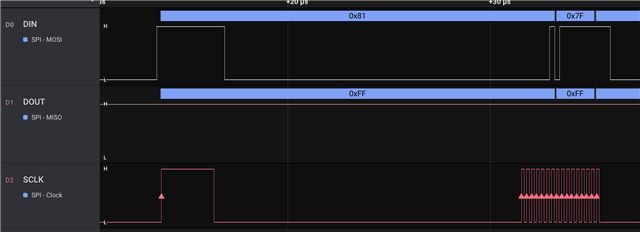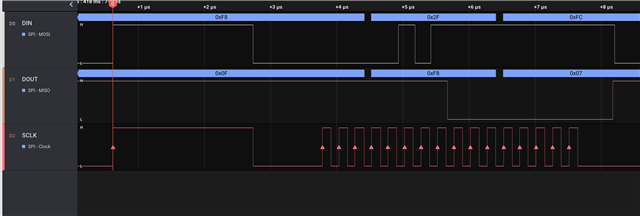I am developing for NRF52840 on a custom board (SDK 15.0, Segger), and working on integration with a HTRC110 RFID HITAG reader chip. This chip supports 3-wire SPI, for which I'm using the NRFX_SPIM driver. I am able to get the driver to transmit bytes as expected, as shown below.

However, the chip specifies that SCLK and DIN (MOSI) must go high before beginning to send a byte on DIN.

Once I've initialized the SPIM driver via nrfx_spim_init, I am unable to manually drive the SCLK and MOSI pins to perform that initialization. I have tried calling nrfx_spim_uninit, driving the pins high, then re-initializing the SPIM driver, but this results in a delay of 15us between the falling edge and the beginning of the driver's transmit operation.

Is there any other way of configuring the driver to perform this initialization? Should I be using a different driver rather than NRFX_SPIM?
Thanks




